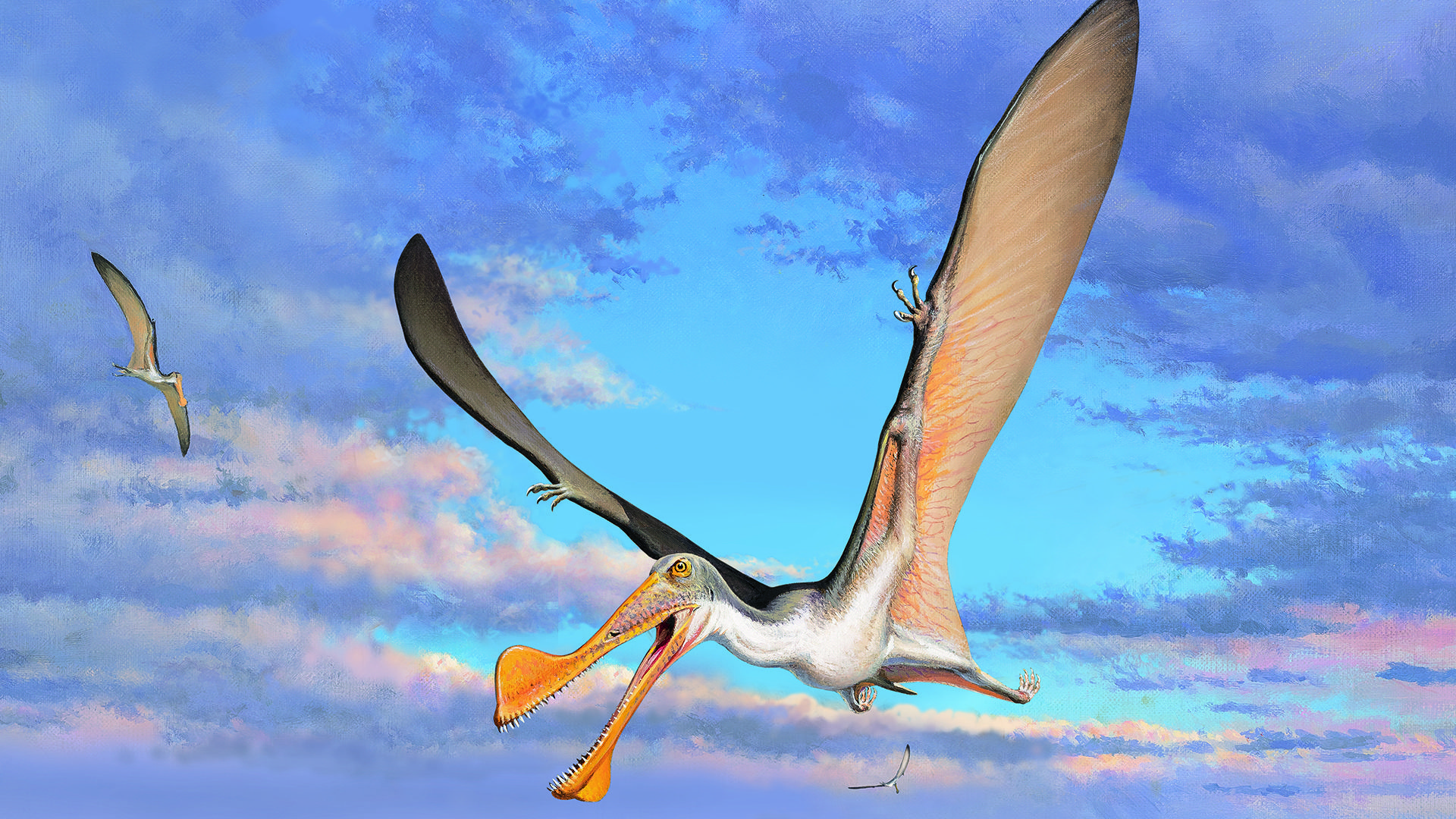Fossils uncovered in Australia are 107 million-year-old pterosaurs bones, scientists say


A free daily email with the biggest news stories of the day – and the best features from TheWeek.com
You are now subscribed
Your newsletter sign-up was successful
Scientists have confirmed that remains extracted from Dinosaur Cove, Australia, are 107 million-year-old pterosaur bones, according to a new study published in the journal Historical Biology. The pterosaur is the world's oldest flying reptile and was the first vertebrate to develop flight through evolution, per CNN.
The bones were originally discovered approximately 30 years ago in the Australian state of Victoria. "Pterosaurs are rare worldwide, and only a few remains have been discovered at what were high palaeolatitude locations, such as Victoria, so these bones give us a better idea as to where pterosaurs lived and how big they were," explained Adele Pentland, the study's lead researcher and a Ph.D. student at Curtin University's School of Earth and Planetary Sciences.
The scientists examined a wing bone from a juvenile pterosaur and a pelvic bone from an adult pterosaur with a large wingspan of over six feet.
The Week
Escape your echo chamber. Get the facts behind the news, plus analysis from multiple perspectives.

Sign up for The Week's Free Newsletters
From our morning news briefing to a weekly Good News Newsletter, get the best of The Week delivered directly to your inbox.
From our morning news briefing to a weekly Good News Newsletter, get the best of The Week delivered directly to your inbox.
"By analyzing these bones, we have also been able to confirm the existence of the first ever Australian juvenile pterosaur, which resided in the Victorian forests around 107 million years ago," Pentland continued. Added Tom Rich of the Museums Victoria Research Institute, who also worked on the study: "These two fossils were the outcome of a labor-intensive effort by more than 100 volunteers over a decade."
"Fewer than 25 sets of pterosaur remains belonging to four species have been found in Australia since the 1980s," CNN summarized, per Pentland.
"Australia was further south than it is today, and the state of Victoria was within the polar circle," meaning it was "covered in darkness for weeks on end during the winter," Pentland added. This shows that pterosaurs had the ability to live under cold and dark conditions. "It is clear that pterosaurs found a way to survive and thrive."
A free daily email with the biggest news stories of the day – and the best features from TheWeek.com
Devika Rao has worked as a staff writer at The Week since 2022, covering science, the environment, climate and business. She previously worked as a policy associate for a nonprofit organization advocating for environmental action from a business perspective.
-
 How the FCC’s ‘equal time’ rule works
How the FCC’s ‘equal time’ rule worksIn the Spotlight The law is at the heart of the Colbert-CBS conflict
-
 What is the endgame in the DHS shutdown?
What is the endgame in the DHS shutdown?Today’s Big Question Democrats want to rein in ICE’s immigration crackdown
-
 ‘Poor time management isn’t just an inconvenience’
‘Poor time management isn’t just an inconvenience’Instant Opinion Opinion, comment and editorials of the day
-
 The world’s oldest rock art paints a picture of human migration
The world’s oldest rock art paints a picture of human migrationUnder the Radar The art is believed to be over 67,000 years old
-
 Blue Origin launches Mars probes in NASA debut
Blue Origin launches Mars probes in NASA debutSpeed Read The New Glenn rocket is carrying small twin spacecraft toward Mars as part of NASA’s Escapade mission
-
 Dinosaurs were thriving before asteroid, study finds
Dinosaurs were thriving before asteroid, study findsSpeed Read The dinosaurs would not have gone extinct if not for the asteroid
-
 SpaceX breaks Starship losing streak in 10th test
SpaceX breaks Starship losing streak in 10th testspeed read The Starship rocket's test flight was largely successful, deploying eight dummy satellites during its hour in space
-
 Rabbits with 'horns' sighted across Colorado
Rabbits with 'horns' sighted across Coloradospeed read These creatures are infected with the 'mostly harmless' Shope papilloma virus
-
 Lithium shows promise in Alzheimer's study
Lithium shows promise in Alzheimer's studySpeed Read Potential new treatments could use small amounts of the common metal
-
 Scientists discover cause of massive sea star die-off
Scientists discover cause of massive sea star die-offSpeed Read A bacteria related to cholera has been found responsible for the deaths of more than 5 billion sea stars
-
 'Thriving' ecosystem found 30,000 feet undersea
'Thriving' ecosystem found 30,000 feet underseaSpeed Read Researchers discovered communities of creatures living in frigid, pitch-black waters under high pressure
